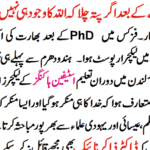Magnesium is an essential mineral that plays a crucial role in numerous bodily functions, including muscle and nerve function, blood glucose control, and bone health. Despite its importance, magnesium deficiency is a common issue that can lead to various health problems. This article explores the signs of magnesium deficiency and lists foods rich in magnesium to help you maintain optimal health.
Understanding Magnesium Deficiency
What is Magnesium Deficiency?
Magnesium deficiency, also known as hypomagnesemia, occurs when there is an insufficient amount of magnesium in the body. This condition can be caused by inadequate dietary intake, poor absorption, or excessive loss of magnesium.
Importance of Magnesium in the Body
Magnesium is vital for:
- Energy production: It helps convert food into energy.
- Protein synthesis: Essential for the creation of proteins from amino acids.
- Muscle and nerve function: Facilitates the transmission of nerve impulses and muscle contraction.
- Bone health: Contributes to bone structure and strength.
- DNA and RNA synthesis: Involved in the synthesis of DNA and RNA.
Signs and Symptoms of Magnesium Deficiency
Common Signs
- Muscle Cramps and Spasms: Magnesium is crucial for muscle function, and a deficiency can lead to muscle cramps, twitches, and spasms.
- Fatigue and Weakness: Low magnesium levels can result in general fatigue and muscle weakness.
- Mental Disorders: Anxiety, depression, and mood swings can be linked to insufficient magnesium.
- Osteoporosis: Magnesium deficiency can contribute to bone density loss, increasing the risk of osteoporosis.
- High Blood Pressure: Adequate magnesium levels help maintain normal blood pressure, and a deficiency can lead to hypertension.
Severe Symptoms
- Numbness and Tingling: Low magnesium can affect nerve function, causing numbness and tingling sensations.
- Abnormal Heart Rhythms: Magnesium is critical for maintaining a regular heartbeat, and deficiency can result in arrhythmias.
- Seizures: In extreme cases, magnesium deficiency can lead to seizures due to abnormal nerve function.
Causes of Magnesium Deficiency
Dietary Insufficiency
A diet low in magnesium-rich foods can lead to deficiency. Foods like green leafy vegetables, nuts, seeds, and whole grains are essential sources of magnesium.
Poor Absorption
Certain medical conditions, such as celiac disease, Crohn’s disease, and chronic diarrhea, can impair the absorption of magnesium in the intestines.
Increased Excretion
Conditions that cause increased excretion of magnesium through urine, such as diabetes and prolonged use of diuretics, can lead to deficiency.
Other Risk Factors
- Alcoholism: Excessive alcohol intake can interfere with magnesium absorption and increase excretion.
- Aging: Older adults are at higher risk due to reduced magnesium absorption and increased excretion.
Diagnosing Magnesium Deficiency
Blood Tests
Magnesium levels are typically measured through blood tests. However, only about 1% of the body’s magnesium is in the blood, so blood tests may not always reflect true magnesium status.
Symptoms Assessment
Healthcare providers may also assess symptoms and medical history to diagnose magnesium deficiency.
Additional Tests
In some cases, a 24-hour urine test may be used to evaluate magnesium levels and excretion rates.
Magnesium-Rich Foods
Leafy Green Vegetables
- Spinach: A nutrient-dense vegetable high in magnesium.
- Kale: Another excellent source of magnesium and other essential nutrients.
Nuts and Seeds
- Almonds: Packed with magnesium, healthy fats, and protein.
- Pumpkin Seeds: One of the best sources of magnesium.
- Chia Seeds: Rich in magnesium, fiber, and omega-3 fatty acids.
Whole Grains
- Brown Rice: Contains a good amount of magnesium compared to white rice.
- Quinoa: A versatile grain that is high in magnesium and protein.
Legumes
- Black Beans: High in magnesium, fiber, and protein.
- Lentils: A great source of magnesium and other essential nutrients.
Fruits
- Avocados: Rich in magnesium and healthy fats.
- Bananas: Provide a moderate amount of magnesium and are also high in potassium.
Fish
- Salmon: Contains magnesium and is also high in omega-3 fatty acids.
- Mackerel: Another fish rich in magnesium and essential fats.
Dairy Products
- Yogurt: Contains magnesium along with probiotics for gut health.
- Milk: A source of magnesium, calcium, and vitamin D.
How to Incorporate Magnesium-Rich Foods into Your Diet
Breakfast Ideas
- Smoothies: Add spinach, chia seeds, and avocado to your morning smoothie.
- Oatmeal: Top with almonds and banana slices for a magnesium boost.
Lunch and Dinner Suggestions
- Salads: Include leafy greens, quinoa, and black beans in your salads.
- Stir-Fries: Use kale, spinach, and salmon in your stir-fries.
Snacks
- Nuts and Seeds: Snack on a handful of almonds or pumpkin seeds.
- Fruit: Enjoy a banana or an avocado as a healthy snack option.
Preventing Magnesium Deficiency
Balanced Diet
Ensure your diet includes a variety of magnesium-rich foods to meet your daily requirements.
Supplements
Magnesium supplements can be used under the guidance of a healthcare provider, especially if you have a condition that affects magnesium absorption.
Regular Check-Ups
Regular medical check-ups can help monitor your magnesium levels and prevent deficiencies.
Conclusion
Magnesium is a vital mineral for maintaining overall health, and deficiency can lead to several health issues. By recognizing the signs of magnesium deficiency and incorporating magnesium-rich foods into your diet, you can ensure your body gets the magnesium it needs. If you suspect you have a magnesium deficiency, consult with a healthcare professional for proper diagnosis and treatment.









